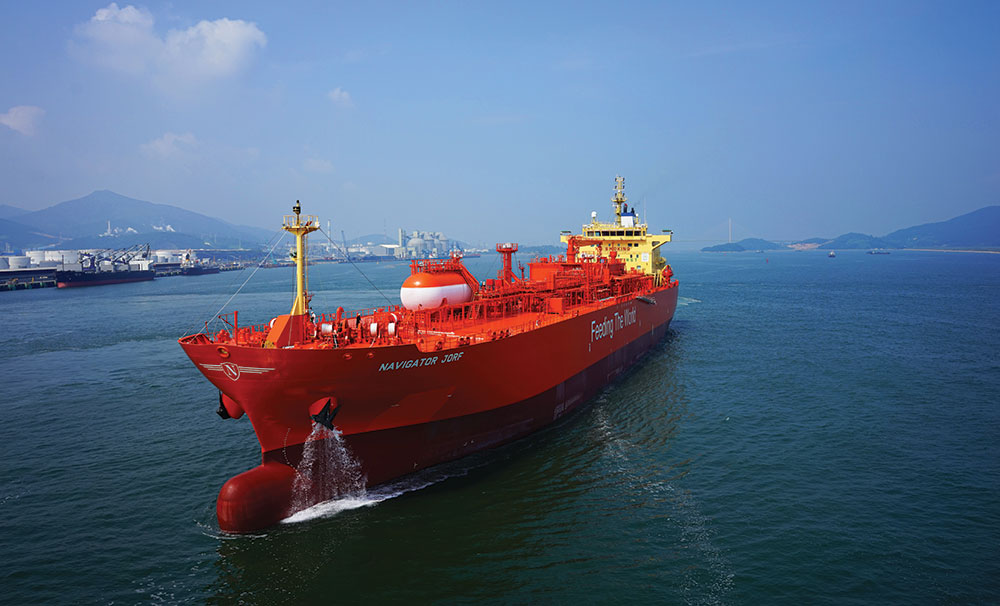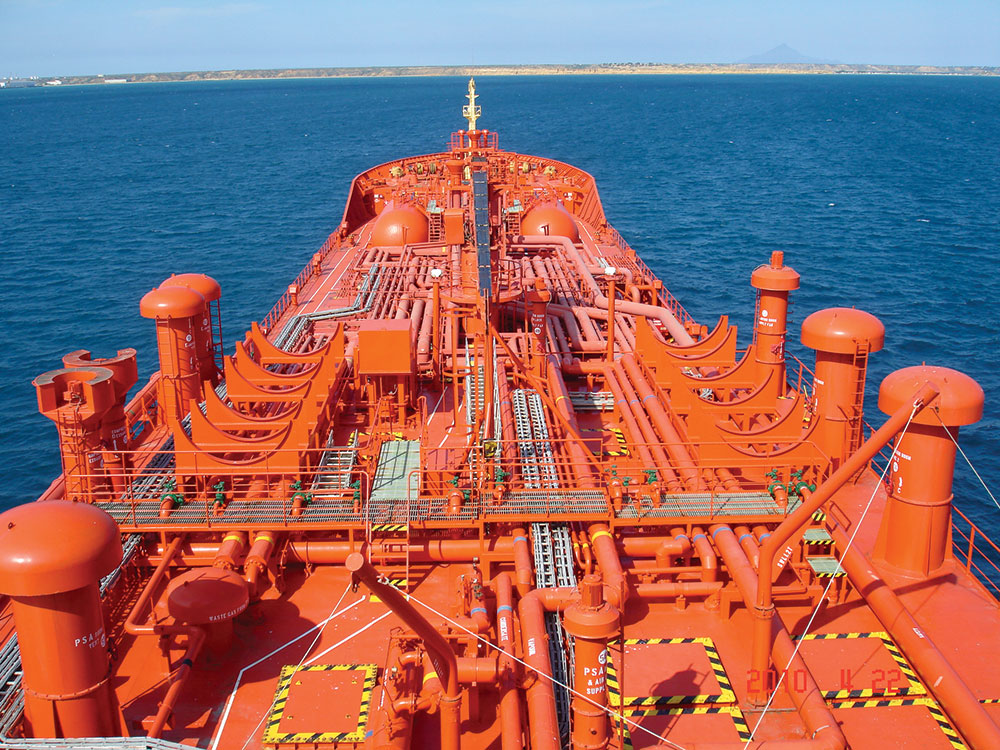Oeyvind Lindeman is CCO Navigator Holdings (Navigator) Oeyvind has vast experience in developing a vision of success, expanding business, boosting sales, and driving profitability. Before being appointed chief commercial officer in January 2014, Oeyvind has been heading chartering for the company since 2007. Prior to Navigator, Mr. Lindeman was employed for five years at A.P. Møller Maersk, a gas transport company as charterer. Mr. Lindeman holds a BA with honors from the University of Strathclyde and an Executive MBA with distinction from Cass Business School.
Navigator Holdings Ltd. is the owner and operator of the world’s largest fleet of handysize liquefied gas carriers and a global leader in the seaborne transportation services of petrochemical gases, such as ethylene and ethane, liquefied petroleum gas “LPG” and ammonia and owns a 50 percent share, through a joint venture, in an ethylene export marine terminal at Morgan’s Point, Texas on the Houston Ship Channel, USA. Navigator’s fleet consists of 53 semi- or fully-refrigerated liquefied gas carriers, 21 of which are ethylene and ethane capable. The company plays a vital role in the liquefied gas supply chain for energy companies, industrial consumers and commodity traders, with its sophisticated vessels providing an efficient and reliable ‘floating pipeline’ between the parties, connecting the world today, creating a sustainable tomorrow.
Q: Navigator has been on an aggressive growth curve over the last two years. Can you tell us a little about the plans for future expansion, profitability and perhaps more mergers and acquisitions?
Ans : 2021 was a landmark year for Navigator. The merger with Ultra Gas has strengthened the fleet size to become a significant market leader in the oil and natural gas sector. Throughout 2021, fleet optimization remained at 91.4 percent. Additionally, we have achieved a throughput of 234,000 tons With these foundations, we continued our strong operational performance in Q4 2021, during which our fleet utilization remained at a high of 91.4 percent, and we achieved throughput volumes of approximately 241,500 tons at the ethylene export marine terminal at Morgan’s Point. Navigator Gas shall continue to be a global leader in seaborne transportation services of petrochemical gases, such as ethylene and ethane, LPG etc.
Q: What are the key industry issues that dominate your mind space at this point in time?
Ans : Crew changes remain a challenge, similar to most shipowners, although an increasing number of crew changes have successfully occurred during the quarter. Dry docking vessels too have been difficult with some yards closing on short notice. However, dry dockings have occurred at various dockyards around the world and the company has completed five drydocks during the third quarter.

Q: How has the ongoing COVID-19 pandemic, followed by the geopolitical de-stability affected your plans and goals?
Ans : COVID-19 was definitely an existential threat to the global economy. However, the maritime industry was significantly moving towards digitization before the outbreak. True the industry has followed intensive paper regime activities for decades, but now we are slowly adopting different methodologies to automate the industry and Electronic Bill of Lading (eBoL) is an example. What I have personally noticed is, the millennial generation has loved the new working style which is WFH and e-meets. Honestly, I believe certain changes in the working style will help the younger generation take the industry forward.
The war in Europe has of course influenced shipping routes. Forward contracts needed to be reworked, and on-demand for gas cargoes has been strong and we believe it will continue to be so in the immediate coming years.
Q: What is Navigator’s stance on sustainability, diversity, and the climate change movement? How do you perceive renewable energy sources and clean ships of the future?
Ans : We believe in using environmentally accepted lubricants and low-emission gas-fueled vessels. We are also looking at ammonia fueled vessels as alternative fuels, to reduce our carbon footprint. We have to look for ways to balance the fuel consumption capacity of alternate fuels, in the newly designed vessels carrying petrochemical products, for safer deep-sea voyages causing less harm to the environment.
Q: What are the core values of Navigator that drive collaboration with partners?
Ans : As industry experts in the oil and natural gas sector, we believe in collaborating with our partners to solve major business challenges whether in terms of executing safe commodity transportation with zero incidents at sea, finding alternate fuel options for a greener environment, or scouting for better fuel efficient vessels, automation etc. Through our 3 pillars which are safety, reliability and efficiency, we look forward to maintaining our position as a global player not only in terms of transportation of petrochemical gases but also to resolve complicated logistical issues with the expertise of our in-house team.
Q: The COVID-19 situation and also current geopolitics have led to major challenges for seafarers trapped at sea. How do you plan to handle disruptions like this?
Ans : Our seafarers are highly trained professionals who know their job at sea. In times of COVID-19 we have followed protocols and executed our tasks in an orderly fashion. In the current war scenario, we still have a significant number of Russian and Ukranian seafarers working together in a harmonious manner until the completion of the voyage. True, everyone is watching their respective local news channels and are highly opinionated about the ongoing situation, but debates or altercations do not surface at the workplace. At Navigator Gas, we have always ensured creating a safe work environment for our employees.
Q: How do India and the Indian subcontinent figure in the gas trades? Do you see changes ahead impacting this?
Ans : India has a huge reservoir of oil and natural gas. India has already witnessed steady increase in production supply of oil and natural gas, and the Reliance Group is the key market player as an explorer and producer in this segment. They are one of the best, known to us. Such key players backed by superior technology and great in-house experts will help India achieve greater achievements in production, supply and consumption. Indian companies should and could look at opportunities for storage and last-mile delivery to capitalize on the increasing demand for gas cargoes.

